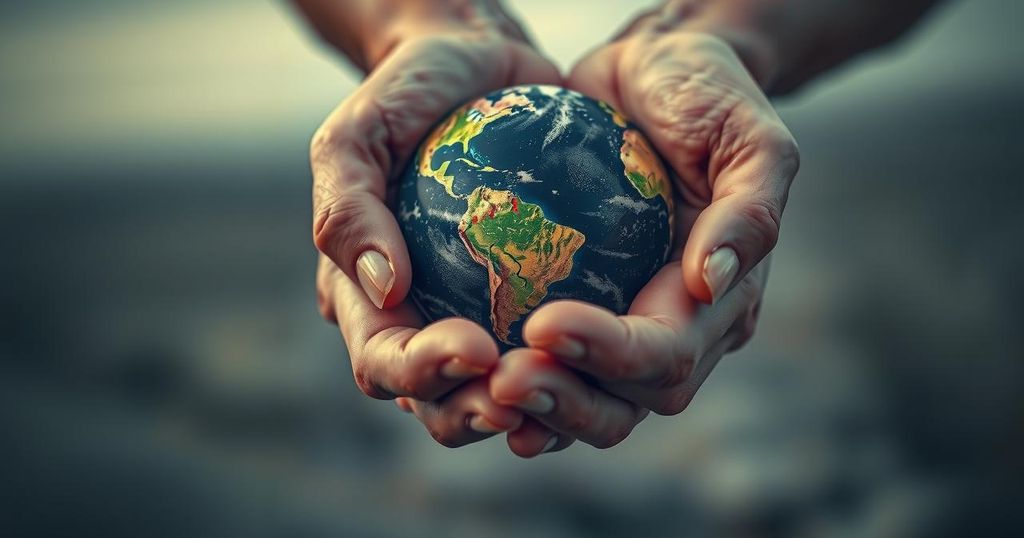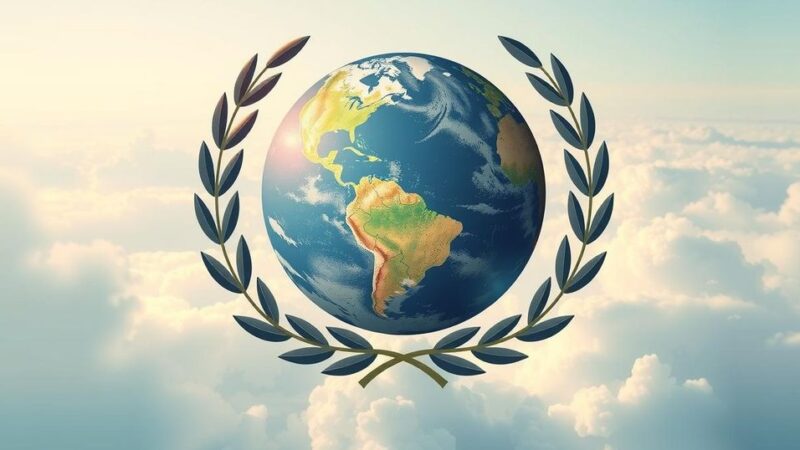The UN has raised alarms over the rising attacks on civilians in Sudan amid the ongoing conflict between SAF and RSF. Recent ethnic violence has led to numerous civilian deaths, particularly in Al Gezira. The conflict has also spilled over into South Sudan, causing retaliatory violence. The US has imposed sanctions on SAF leadership, and the situation has escalated into a significant humanitarian crisis.
The ongoing conflict in Sudan, marked by a struggle between the Sudanese Armed Forces (SAF) and the Rapid Support Forces (RSF), has escalated violence toward civilians. UN High Commissioner for Human Rights, Volker Turk, expressed grave concern regarding the increasingly frequent direct and ethnically motivated assaults on civilians during this protracted war, now nearing its two-year mark.
Recent developments have seen a surge in targeted attacks against civilians in Sudan, notably in the southeastern state of Al Gezira. The conflict, which reignited in April 2023, has resulted in numerous fatalities from ethnic violence, with reports documenting at least 21 deaths from just two reported incidents in the past week.
The SAF has regained control of Wad Medani, Al Gezira’s capital, yet the RSF retains significant dominance in various strategic regions south of Khartoum. The Emergency Lawyers group reported a devastating attack in Al Khizan village, resulting in 15 fatalities and over 20 injuries, leading to mass displacement among local residents.
In a shocking turn of events, SAF soldiers have been accused of attacking Darfur natives after reclaiming Wad Medani. Videos circulating online depict harrowing scenes of violence against these individuals, perceived as having associations with the RSF, fostering further ethnic tensions in the region.
The UN, along with Sudanese rights organizations, has condemned these violent incidents. The Sudanese army has pledged to investigate the acts and impose appropriate penalties for those found accountable.
The violence has even transcended borders, affecting South Sudan, where alleged executions of black South Sudanese by SAF fighters prompted retaliatory violence against Sudanese refugees. The unrest in Juba resulted in the deaths of three individuals and injuries to seven others amid rising ethnic tensions as refugees continue to arrive in droves.
In light of the unrest, South Sudanese President Salva Kiir has called for restraint among citizens and announced a curfew to maintain peace and protect both Sudanese nationals and their properties. The Sudanese Foreign Ministry expressed gratitude towards the South Sudanese government for their cooperation while advising Sudanese citizens to remain vigilant.
The United States has responded to the situation by imposing sanctions on General Abdel Fattah Al Burhan, the SAF leader, citing his role in the ongoing civil conflict. US Secretary of State Antony Blinken accused the SAF of committing war crimes during the recent attacks in Wad Medani.
In response, Sudan’s Foreign Ministry condemned the sanctions as morally unjust and accused them of ignoring the reality faced by the Sudanese people. Concurrently, the SAF-affiliated General Intelligence Service criticized US interference, asserting that it undermines the sovereignty of Sudan during a pivotal time in its history.
With this conflict leading to one of the direst humanitarian crises globally, an estimated half of Sudan’s population now requires assistance. Since the commencement of the war, tens of thousands have lost their lives, and over 11.5 million individuals have been displaced from their homes.
The conflict in Sudan stems from a power struggle between the SAF and RSF, with roots deep in the country’s political and ethnic tensions. The violence that erupted in April 2023 has led to alarming humanitarian issues, including widespread civilian casualties and displacement. The international community has been observing the deteriorating situation closely, with calls for accountability and action against human rights violations, particularly those affecting vulnerable groups.
The situation in Sudan reflects a dire humanitarian catastrophe, marked by escalating violence against civilians and ethnic brutality. The international response, including sanctions from the United States and calls for investigations into human rights abuses, highlights the urgent need for a resolution to this devastating conflict. As millions are affected, the resolve of local and global leadership will be pivotal in addressing the ongoing crises.
Original Source: www.thenationalnews.com







